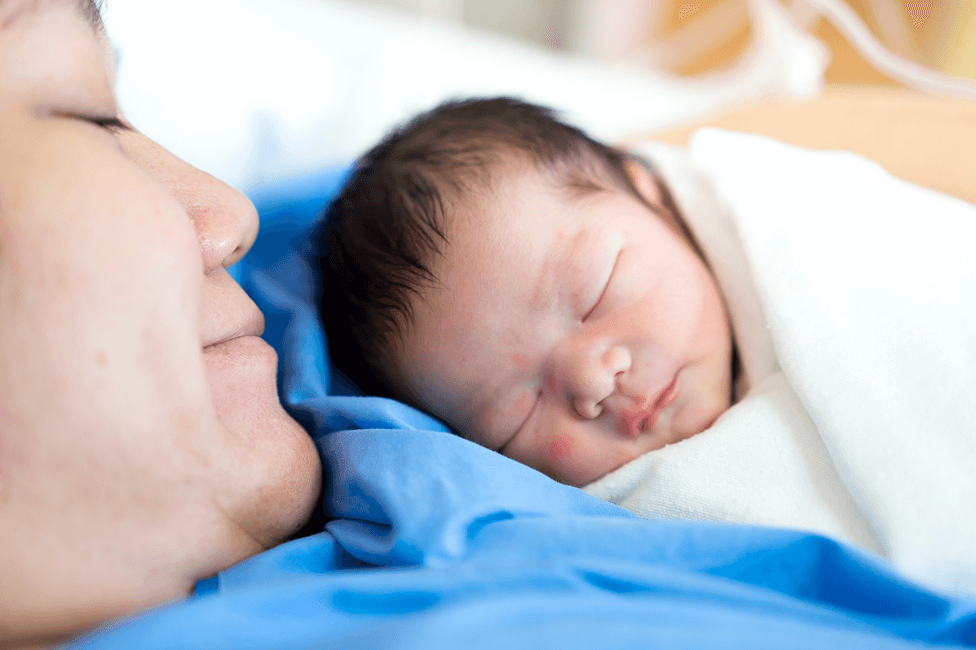Every fall and winter, RSV makes people sick. Most of the time, the illness is mild. But it can be more serious for babies and young children. Nirsevimab is a free immunization for all babies born between October 1, 2025, and March 31, 2026. It will be available in the fall of 2025, and your baby should receive it before they are discharged from the hospital, birth centre or home birth. If your baby doesn’t receive Nirsevimab before discharge, ask your local healthcare provider about how to get it.
What is RSV?
RSV is a common virus that spreads easily through coughs and sneezes, touching things such as toys or doorknobs, or kissing someone who has the virus. Most kids will get RSV by the time they turn two.
RSV is usually mild, however babies under six months old may get really sick and need to be hospitalized.
For more information on RSV, check out:
- Respiratory Syncytial Virus (RSV) | Health | Province of Manitoba
- RSV (Respiratory syncytial virus)-What to Know, When to Get Help – Parenting in Manitoba
- How to Care for Your Child During Respiratory Virus Season – Parenting in Manitoba
- Nirsevimab RSV fact sheet- Manitoba Health
What is Nirsevimab?
Nirsevimab (Beyfortus™) is an antibody product that provides immunity right away to protect your baby against RSV. One dose, given by a needle, helps protect your baby for five to six months. It has been shown to lower the chances of serious illness and hospital visits by up to 90 per cent.
Tips for soothing your baby during immunizations:
- Breastfeed/chestfeed or bottle feed your baby while they are being immunized.
- Hold your baby skin to skin and sing or talk to them while being immunized.
When should my baby get Nirsevimab?
It is best for your baby to get Nirsevimab soon after they are born so they are protected against RSV right away. A healthcare provider will offer to give Nirsevimab to your baby before they are discharged from the hospital/birth centre. If your baby doesn’t receive Nirsevimab before discharge, be sure to ask your local healthcare provider (midwife, nursing station, health centre) about how to get it.
Who can get Nirsevimab?
Starting in fall 2025, all babies born between October 1, 2025, and March 31, 2026 in Manitoba can get one dose of Nirsevimab. For up-to-date eligibility criteria for Nirsevimab, visit: Vaccine Eligibility | Health | Province of Manitoba
Who should NOT get Nirsevimab?
Talk to a healthcare provider if your child:
- Had a strong allergic reaction to a previous dose of, or to any ingredient in, Nirsevimab
- Is very sick , wait until they feel better.
Note: A mild illness, like a runny nose or slight cough, does not mean your child should skip getting a dose.
Are there side effects?
Nirsevimab is approved by Health Canada and is considered safe. Side effects are uncommon. Like with any immunization, mild side effects can include:
- A little soreness, redness or swelling where the shot was given
- Fussiness
Did you know?
Aspirin® (ASA) should not be given to children, as it can cause a rare but serious illness called Reye’s Syndrome. Talk to your healthcare provider about the use of Acetaminophen (Tylenol®, Tempra®) or ibuprofen (Advil®, Motrin®)
There have been no reports of serious allergic reactions with Nirsevimab. Severe reactions are extremely rare but could happen. Watch for signs of an allergic reaction, such as:
- Hives (raised, itchy bumps on the skin)
- Trouble breathing
- Swelling of the face or throat
Does my baby need Nirsevimab if I got the RSV vaccine in pregnancy?
- If you have received an RSV vaccine while pregnant, ask your health care provider if your baby still needs Nirsevimab.
- There are no known safety concerns with giving Nirsevimab to your baby if you received the RSV vaccine during pregnancy.
- Using both is not routinely recommended however, it may be considered if your baby is at high risk or born less than 14 days after the birthing parent received the RSV vaccine.
Learn More
If you have questions about RSV or Nirsevimab, talk to your local healthcare provider or contact:
Health Links–Info Santé
Winnipeg: 204-788-8200
Toll-free: 1-888-315-9257
www.gov.mb.ca/health/publichealth/cdc/div/index.html


